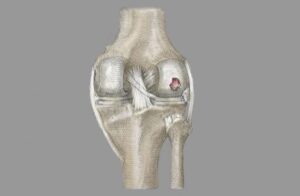Physician burnout is a serious and pervasive issue that affects the well-being and performance of healthcare professionals worldwide. The demands of long working hours, emotional exhaustion, and the pressure to deliver high-quality care take a toll on physicians’ mental and physical health. In this article, we explore practical and evidence-based ways to reduce physician burnout, fostering a healthier and more fulfilling work-life balance.
Ways to Reduce Physician Burnout
Discover actionable strategies and proven techniques to alleviate physician burnout. Our comprehensive guide offers insights into fostering work-life balance, implementing self-care routines, and cultivating a supportive healthcare environment. Prioritize the well-being of healthcare professionals and enhance the quality of patient care by exploring these effective ways to combat burnout.
Foster a Supportive Work Environment:
Creating a supportive work environment is crucial in combating physician burnout. Hospital administrators and healthcare leaders must prioritize the well-being of their medical staff. Implementing regular check-ins, encouraging open communication, and providing resources for coping with stress can significantly reduce burnout levels.
Encourage Work-Life Integration:
Promote the idea of work-life integration instead of the traditional work-life balance. Encouraging physicians to blend their personal and professional lives seamlessly can lead to improved job satisfaction and decreased burnout. Offering flexible work schedules and remote working options can be invaluable in achieving this goal.
Enhance EHR Efficiency:
Electronic Health Records (EHR) systems have become an integral part of modern healthcare, but their inefficiencies can add to physician burnout. Investing in user-friendly EHR systems and providing comprehensive training can improve physician productivity and reduce documentation-related stress.
Implement Mindfulness Programs:
Mindfulness practices, such as meditation and yoga, have proven to be effective in reducing stress and burnout among physicians. Healthcare institutions should incorporate mindfulness programs into their wellness initiatives to promote self-awareness and emotional resilience.
Create Peer Support Groups:
Physicians often find solace in connecting with colleagues who understand their challenges. Establishing peer support groups where physicians can share experiences, seek advice, and vent their frustrations can create a sense of camaraderie and alleviate burnout.
Also Read:
Offer Wellness Workshops:
Organizing wellness workshops that address stress management, resilience-building, and healthy lifestyle choices can empower physicians to take better care of themselves. These workshops should be made easily accessible and tailored to the unique needs of healthcare professionals.
Ensure Adequate Staffing:
Understaffed healthcare facilities put immense pressure on physicians, leading to burnout. Hospital administrators must prioritize adequate staffing levels to prevent excessive workloads and allow physicians to provide quality care without sacrificing their well-being.
Emphasize Professional Development:
Investing in ongoing professional development can boost physician morale and prevent burnout. Offering opportunities for continuing medical education, conferences, and skill enhancement programs not only improves job satisfaction but also enhances patient care.
Encourage Physical Activity:
Regular exercise has proven to be a powerful stress reducer. Encourage physicians to incorporate physical activity into their daily routines by providing on-site fitness facilities or subsidizing gym memberships.
Normalize Seeking Help:
Breaking the stigma around seeking mental health support is crucial in reducing physician burnout. Healthcare institutions should prioritize mental health services, making them readily available and confidential for all physicians. Normalizing help-seeking behavior can encourage physicians to seek assistance when needed without fear of judgment.
Offer Employee Assistance Programs (EAPs):
Implementing Employee Assistance Programs can provide a valuable resource for physicians facing personal or work-related challenges. EAPs offer confidential counseling and support services, helping physicians cope with stress, anxiety, and other mental health issues.
Conduct Regular Feedback Sessions:
Encourage regular feedback sessions between physicians and their supervisors to address concerns, identify stress triggers, and find solutions collaboratively. Constructive feedback and support from management can help physicians feel heard and valued, reducing burnout risks.
Limit Administrative Burden:
Reduce administrative burdens by streamlining paperwork, automating routine tasks, and providing administrative support to physicians. By freeing up time and mental energy, physicians can focus more on patient care and experience decreased burnout.
Implement Emotional Intelligence Training:
Emotional intelligence training can empower physicians with skills to recognize and manage their emotions effectively. Developing emotional intelligence helps physicians cope with stressful situations, maintain empathy, and foster positive relationships with patients and colleagues.
Foster a Culture of Gratitude:
Encourage a culture of gratitude and appreciation within the healthcare facility. Acknowledging physicians’ hard work and dedication through simple acts of recognition, such as thank-you notes or awards, can boost morale and mitigate feelings of burnout.
Conclusion:
Physician burnout is a complex and multi-faceted issue that demands urgent attention. By implementing these fifteen strategies to reduce physician burnout, healthcare institutions can cultivate a supportive and nurturing environment for their medical staff. Addressing burnout not only benefits physicians’ well-being but also enhances patient care and overall healthcare outcomes. A collective effort from administrators, healthcare leaders, and individual physicians is essential in creating a healthier and more fulfilling work-life balance within the medical community.









